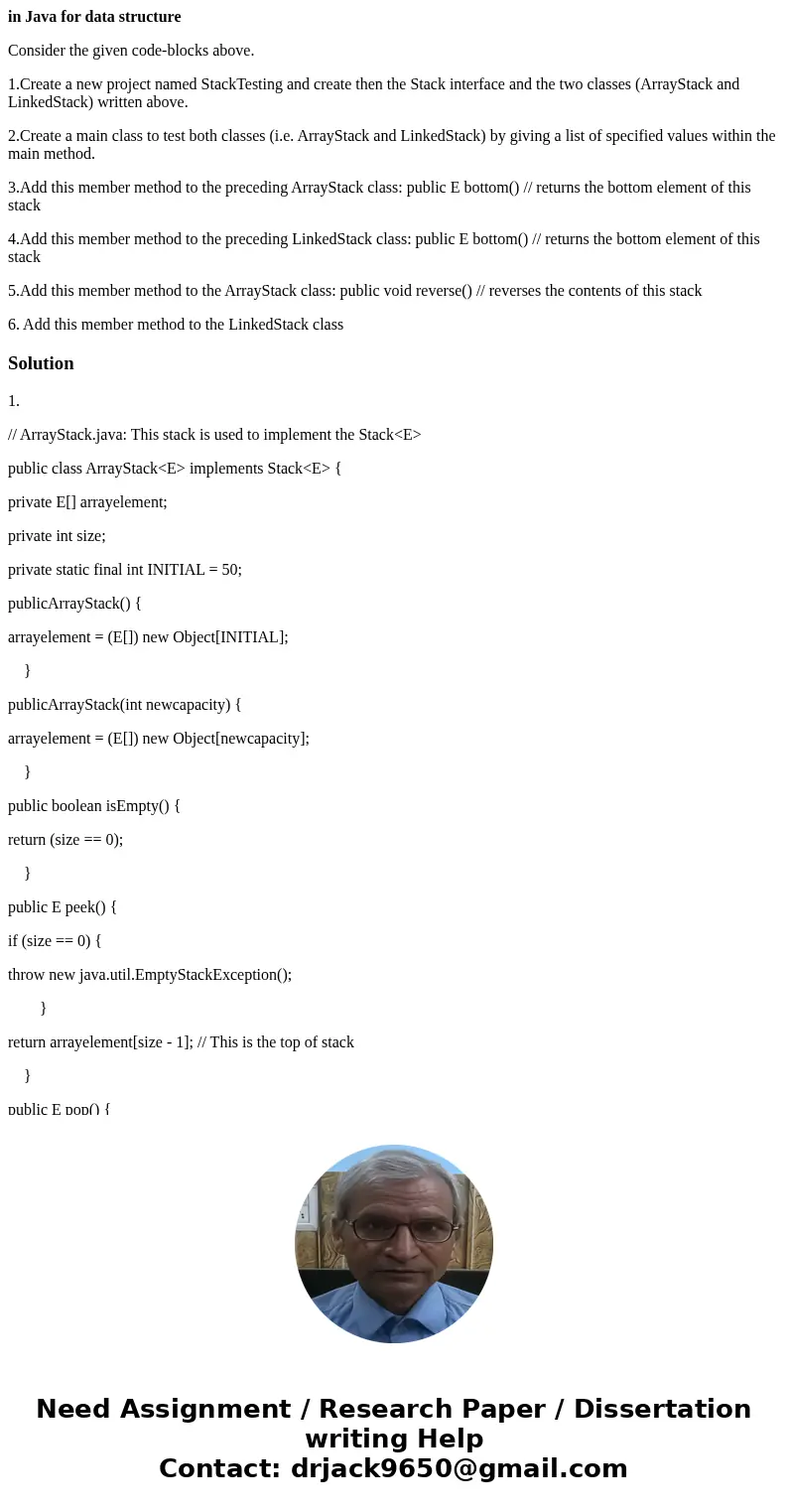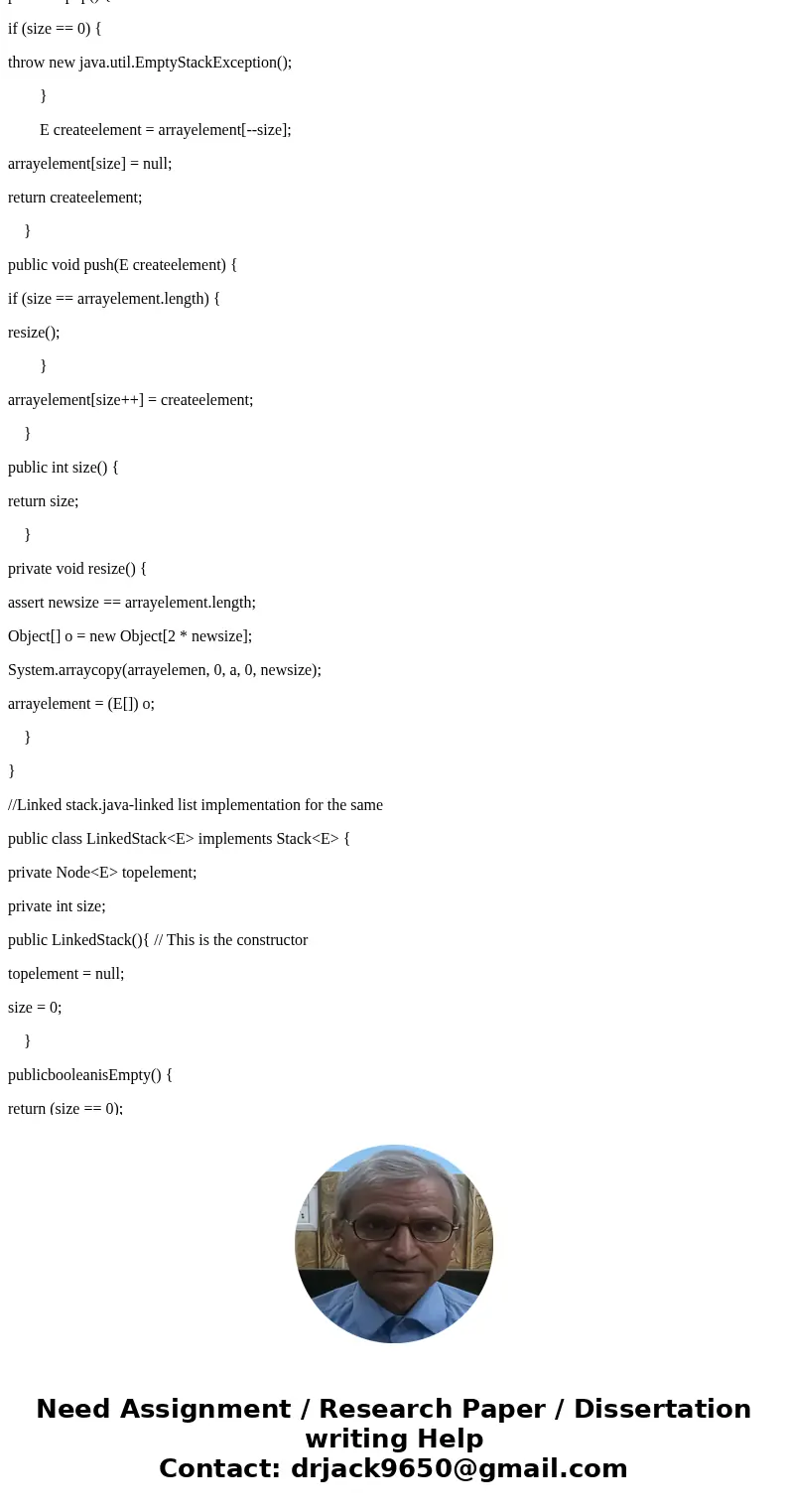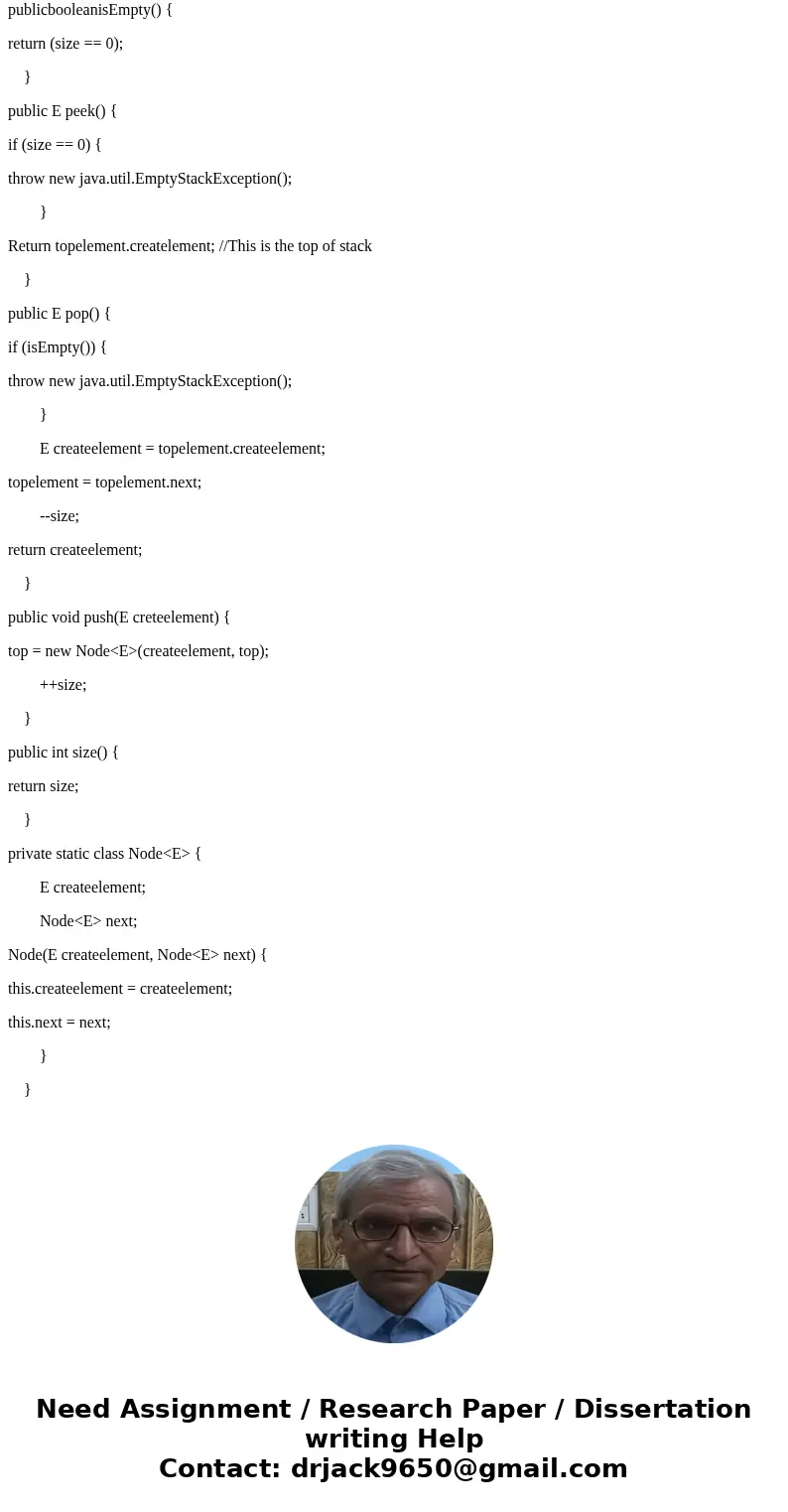in Java for data structure Consider the given codeblocks abo
in Java for data structure
Consider the given code-blocks above.
1.Create a new project named StackTesting and create then the Stack interface and the two classes (ArrayStack and LinkedStack) written above.
2.Create a main class to test both classes (i.e. ArrayStack and LinkedStack) by giving a list of specified values within the main method.
3.Add this member method to the preceding ArrayStack class: public E bottom() // returns the bottom element of this stack
4.Add this member method to the preceding LinkedStack class: public E bottom() // returns the bottom element of this stack
5.Add this member method to the ArrayStack class: public void reverse() // reverses the contents of this stack
6. Add this member method to the LinkedStack class
Solution
1.
// ArrayStack.java: This stack is used to implement the Stack<E>
public class ArrayStack<E> implements Stack<E> {
private E[] arrayelement;
private int size;
private static final int INITIAL = 50;
publicArrayStack() {
arrayelement = (E[]) new Object[INITIAL];
}
publicArrayStack(int newcapacity) {
arrayelement = (E[]) new Object[newcapacity];
}
public boolean isEmpty() {
return (size == 0);
}
public E peek() {
if (size == 0) {
throw new java.util.EmptyStackException();
}
return arrayelement[size - 1]; // This is the top of stack
}
public E pop() {
if (size == 0) {
throw new java.util.EmptyStackException();
}
E createelement = arrayelement[--size];
arrayelement[size] = null;
return createelement;
}
public void push(E createelement) {
if (size == arrayelement.length) {
resize();
}
arrayelement[size++] = createelement;
}
public int size() {
return size;
}
private void resize() {
assert newsize == arrayelement.length;
Object[] o = new Object[2 * newsize];
System.arraycopy(arrayelemen, 0, a, 0, newsize);
arrayelement = (E[]) o;
}
}
//Linked stack.java-linked list implementation for the same
public class LinkedStack<E> implements Stack<E> {
private Node<E> topelement;
private int size;
public LinkedStack(){ // This is the constructor
topelement = null;
size = 0;
}
publicbooleanisEmpty() {
return (size == 0);
}
public E peek() {
if (size == 0) {
throw new java.util.EmptyStackException();
}
Return topelement.createlement; //This is the top of stack
}
public E pop() {
if (isEmpty()) {
throw new java.util.EmptyStackException();
}
E createelement = topelement.createelement;
topelement = topelement.next;
--size;
return createelement;
}
public void push(E creteelement) {
top = new Node<E>(createelement, top);
++size;
}
public int size() {
return size;
}
private static class Node<E> {
E createelement;
Node<E> next;
Node(E createelement, Node<E> next) {
this.createelement = createelement;
this.next = next;
}
}



 Homework Sourse
Homework Sourse